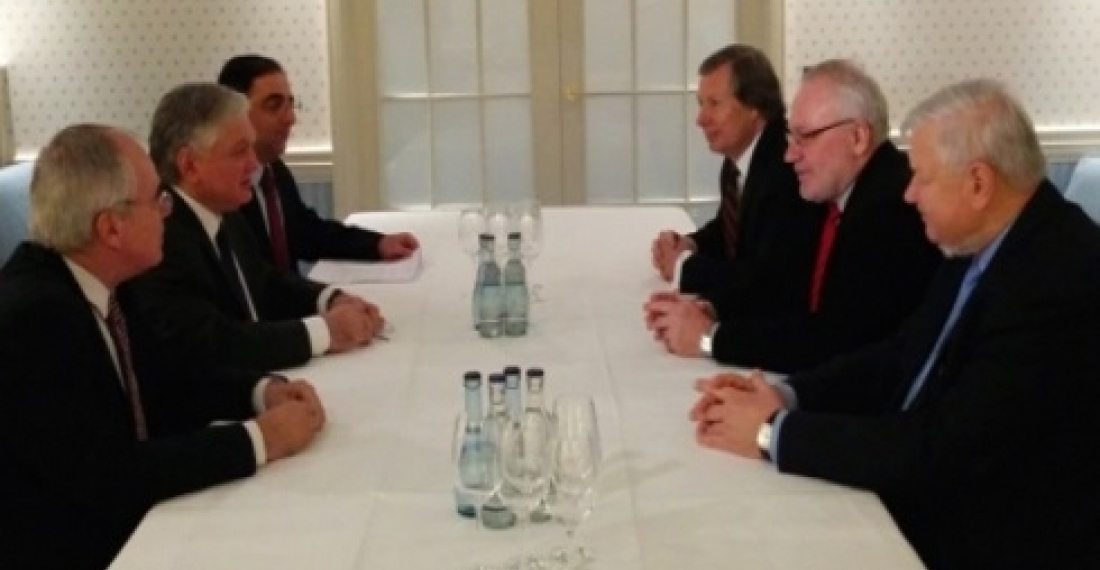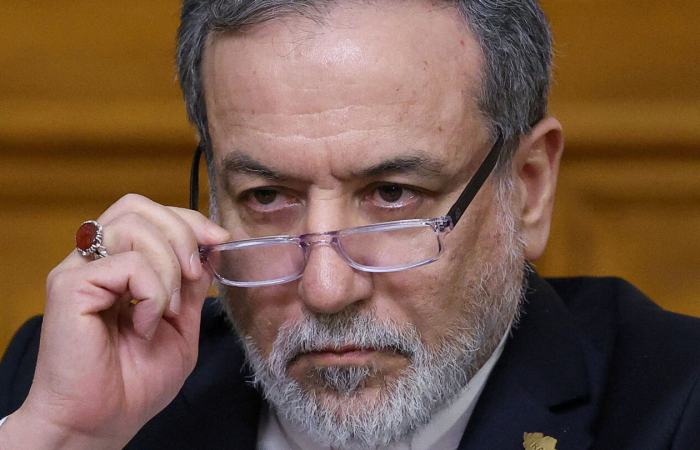Международные усилия направленные на перезагрузку переговоров по урегулированию конфликта между Арменией и Азербайджаном продолжилиь вчера в Мюнхене во время встречи сопредседателей Минского процесса ОБСЕ с министром иностранных дел Армении Эдвардом Налбандяном в кулуарах Мюнхенской Конференция по безопасности. В заявлении, опубликованном через пресс-службу Организации по безопасности и сотрудничеству в Европе (ОБСЕ) послы Игор Попов от Российской Федерации, Джеймса Уорлика от Соединенных Штатов Америки, и Пьер Андрие от Франции сказали следующее:
"Мы с тревогой отмечаем рост числа инцидентов вдоль линии соприкосновения и армяно-азербайджанской границы, в том числе в жилых районах. Мы также обсудили с министром предложенные меры по снижению вероятности таких инцидентов. В частности, сторонам необходимо принять меры по недопущению повторения инцидента со сбитым вертолетем 12 ноября.
Насилие и напряженность между сторонами, подчеркивает необходимость начала всеобъемлющих переговоров и как можно скорее достичь прочного урегулирования. Мы призвали министра проявить больше гибкости, чтобы такие переговоры могли начаться.
Мы напомнили о важности скорой реализации договоренностей президентов по обмену данными о пропавших без вести лиц под эгидой МККК. Такой обмен данными может построить доверие между сторонами и содействовать процессу примирения.
Кроме того, мы призвали к возобновлению диалога между президентами при первой же возможности."
Политический редактор Commonspace.eu в своем комментарии сообщает, "заявление отражает возросшее разочарование в международном сообществе в связи с неспособностью сторон положительно участвовать в усилиях по урегулированию конфликта мирным путем, и опасений, что насилие постоянно происходящее на линии соприкосновения может выйти из под контроля. Стороны ежедневно сообщают о жертвах, число жертв среди гражданского населения также растет поэтому необходимо возобновить серьезные переговоры. Сопредседатели в конце этого месяца посетят регион, чтобы встретиться с двумя президентами. Однако, встреча президентов лицом к лицу или на уровне министров пока врятли возможна. Тон заявления сопредседателей после встречи с министром иностранных дел Армении был более грубый, чем обычно, и в соответствии с аналогичным заявлением опубликованным 26 января, когда сопредседатели встретились с министром иностранных дел Азербайджана в Польше. На данный момент у посредников в их распоряжении немного средств, помимо дипломатической настойчивости. Мы пока еще не видили дипломатического выкручивания рук, но рукопожатия становятся грубее."
источник: commonspace.eu
фото: министр иностранных дел Армении Эдвард Налбандян на встрече с сопредседателями Минского процесса ОБСЕ в Мюнхене, 6 февраля 2015 года (фото любезно предоставлено пресс-службой Министерства иностранных дел Армении).







